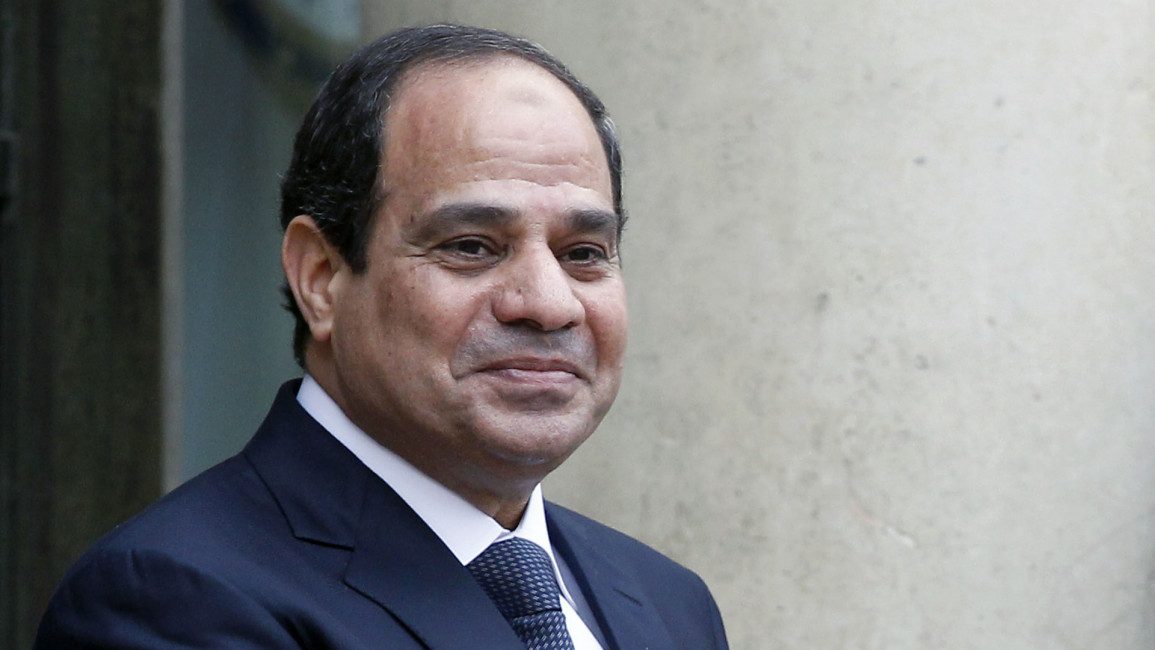
The Syrian revolution, brought to you by Sisi
Give Samuel Beckett, the absurdist, a text that reads, "The regime of the coup leader in Egypt, who was carried on the shoulders of the counterrevolution, will sponsor dialogue among Syrian opposition factions to get the Syrian revolution out of its predicament".
Wait. See what his reaction would be.
Samuel Beckett, the father of the theatre of the absurd, died in 1989. If he were among us today, however, and one were to tell him that Abdel Fatah el-Sisi intended to host the dialogue of the Syrian opposition in Cairo as a preparatory
| If Beckett were alive today and following developments in the Middle East, he may just decide to retire |
step to talks with Moscow, Beckett may just have decided to retire. He may have recognised that he was just a humble pupil, that new masters had arrived bringing with them a mind boggling mix of political absurdism and revolutionary nihilism.
Unlikely peacemakers
Iraqi Prime Minister Haider al-Abadi emerged from his meetings with Egyptian authorities this week to announce explicitly that there was Egyptian-Iraqi accord over support for the regime of Bashar al-Assad remaining in power. He intimated that Egypt and Iraq were working to create a state of coexistence between Assad and the peaceful opposition, according to Egyptian newspaper al-Ahram.
Thus we have the deatils of this sketch. Two regimes that have distinguished themselves by uprooting and marginalising sections of their own populations leading to massacres and bloodbaths, are exporting these policies to the regional stage to support a reconciliation between a state that is far more systematically brutal and the revolution that has been fighting it for four years.
These two regimes hope their intervention will somehow help a conflict that has claimed the lives of around 300,000 people, and displaced or exiled millions.
Logic itself commits suicide first. Some even celebrate the move by the perpetrators of the Rabaa massacre to host the opponents of another murderous regime that negotiates with its opposition via barrel bombs. They expect a decent settlement to the Syrian tragedy to come out of this.
Political Islam in the cross-hairs
However, we need to realise that the backdrop of all diplomatic activity in our region right now is the war on terror, and all the facts and illusions that involves.
Under the headline of the Islamic State group (IS, formerly ISIS), all Arab resistance movements affiliated to political Islam are being placed on a hit list. In this way, Hamas becomes a burdensome guest for other Arab states at a time when the door is opened wide to Knesset leaders and rabbis.
Naturally, we cannot blame the counterrevolutionary camp for using the gratuitous opportunity the regional and international order has provided to contain all the Arab Spring uprisings. However, we cannot help but express our amazement at those revolutionaries who agree to join the bandwagon of "patching things up", guided by the US and goaded on by Israeli insistence, when the miserable experience of Libya should be foremost in their minds.
| We need to realise that the backdrop of all diplomatic activity ... is the war on terror and all the illusions that involves. |
Indeed, Cairo and Moscow's intervention to lure the Syrian opposition into the trap of negotiations will not produce a result any different from the outcome of the Libyan crisis. I would even go as far as to say the Russian-Egyptian effort seeks to produce another Khalifa Haftar in Syria, which would effectively squander four years of struggle against the atrocities of the Assad regime.
There is almost nothing more perplexing than the fact that, in tandem with the announcement regarding Cairo's hosting of the Syrian opposition, there are reports of US-led efforts to train and arm the so-called moderate Syrian opposition. This indeed means we are seeing a repeat of the Libyan scenario, bearing in mind that Assad is still there and that he now enjoys clear regional backing.
The Arab Spring revolutions erupted at an exceptional moment in history, when all forces merged into one. No analyst can attribute what happened to a particular ideology or political movement, as it was more of an unusual confluence of people dreaming of change in which the left stood shoulder to shoulder with the right, the Islamists with the nationalists.
Therefore, it was not odd the counterrevolutions sought to cut off the supporters of the Arab Spring from one another and bring about infighting among the erstwhile partners in that dream. The 'deep state' is now taking advantage of the dust kicked up by this infighting to slip back into power through the cracks and revive the past in an even uglier form.
Opinions expressed in this article remain those of the original author and do not necessarily reflect the opinions of al-Araby al-Jadeed, its editorial board or staff.
This is an edited translation from our Arabic edition.




